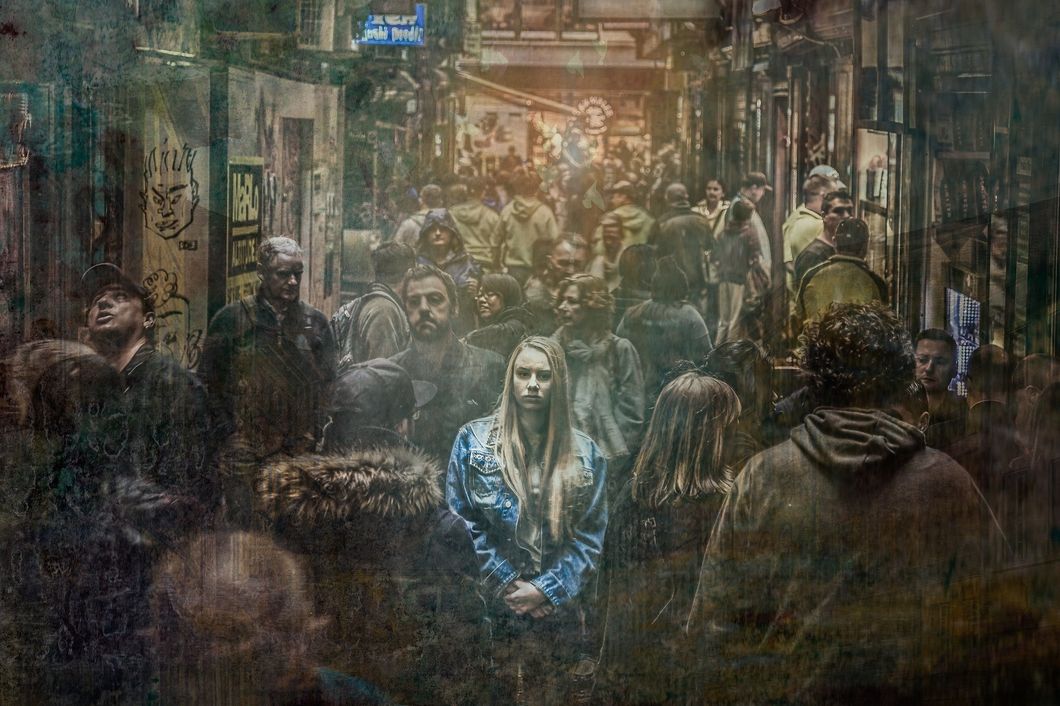When you live with anxiety and depression, every day is a constant mental battle.
It's forcing myself to get out of the house at least once, even when I have absolutely no motivation. It is accidentally not saying something as simple or hey or bye and then thinking the person hates you, even though that probably isn't true. It's being scared to even talk because of being self-conscious that word salad is going to come out or sound completely stupid.
When I first started writing, I wrote about how understanding my family history has helped with this. It has, but I still sometimes find myself where my understanding is still not enough. That's when it gets bad. When the days are harder and the motivation takes more effort to find. My family history has helped me understand more of myself, but I think there is an underlying lesson that has taken me many years to learn: It is OK to not be OK.
Yes, I have heard this before, but collectively as a society, we don't actually believe this. For a long time, I would completely disregard it when someone would tell me this. I would ignore it because it made me feel weak. I was already feeling physically ill, but even more so, I felt hopeless. That being said, the last thing I wanted to feel was weak or small.
That's the thing with depression and anxiety--they take every emotion you have and send them into a tailspin. I got to the point where I mentally couldn't allow myself to be happy. My brain would not allow me to. I would blame everything on any little thing external because I did not want to feel broken.
I did not allow myself to feel broken or weak. I did not allow myself to feel or emote, which turned into a massive problem long-term. Looking back, it even caused short-term problems I could not see. I would shut myself off to everyone. I said everything was good, college was great, and I was living the best life and the life I was happiest in. I lied to my family, to my friends, to everyone around me because I could not bear the thought of being a burden to them. I could not and would not worry them with my problems because I know they have their own lives and their own sets of problems.
My senior year of high school was not one for the faint of heart. Life started to hit me hard. Beyond all the typical stresses seniors face, my grandpa and uncle died to a monster that I like to call lymphoma. My granny went into assisted living, and not once did I take the time to process any of it. I should have taken a gap semester or at least stayed at home for a semester and then gone to school. Every single time I thought of the idea, I kept dismissing the thought because I felt ashamed, and part of that is because of the stigma surrounding mental health.
Two years later, l look back and realize I should have been OK with not being OK.
I know now that I was wrong. It's OK to not be OK, but so many people still don't believe that.
Even in 2018, there is still a very real stigma. Especially when you live in the Bible Belt. For a long time, I thought I wasn't allowed to feel broken. This was not my dad's fault or anyone really around me. I live in a conservative state that has never taken mental health seriously nor does it want to.
There have been cutbacks upon cutbacks on the state's mental health budget. It showed me that the state does not care. Then, there were the statistics and my own family's battle with mental health. Statistically, women do not get taken seriously when it comes to depression, anxiety, pain or a countless number of other very common things. To add to the stats, my grandmother never ever got taken seriously, and she lived in red states just like me.
No one ever told her that it is OK to not be OK, and I believed them.
Now I see it is OK to feel and not be OK because we are humans with souls that are allowed to feel.
Sometimes, we say words to comfort people like "I'm sorry," or something remotely similar. Instead of saying "I'm sorry" or something similar, try saying it is OK and meaning it. Give them a hug. Do anything but say "I'm sorry" because trust me, what we need isn't sympathy but rather understanding and caring.
We have to change. It isn't easy, but it is necessary.
















